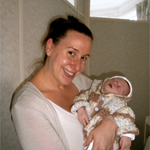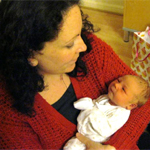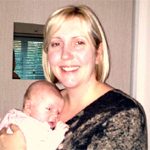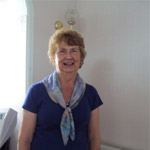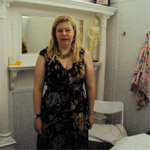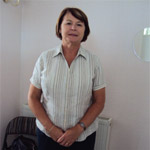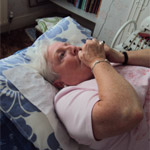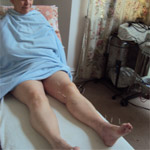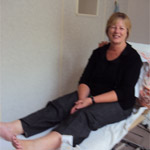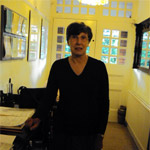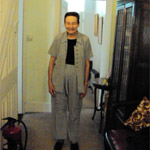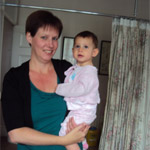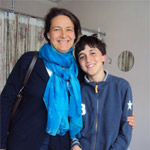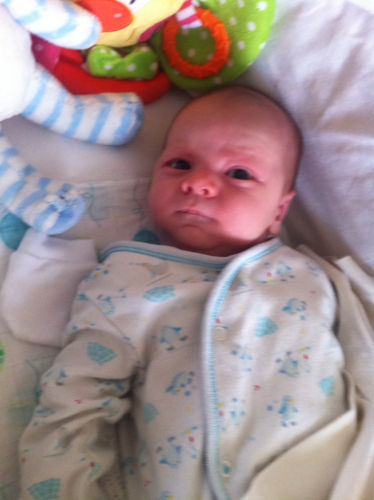Menopause and acupuncture: pointing you in the right direction of this ancient complementary medicine
World Menopause Day is marked on the 18th October every year with one main purpose in mind: to raise awareness of the menopause and the support options available.
As an osteopath and acupuncturist, with just under 40 years in the industry, I wanted to share the wonderful benefits that acupuncture can bring and shine a light on why this ancient therapy might be worth considering.
But first, what is the menopause?
According to the British Menopause Council*, the menopause usually starts between the ages of 45 and 55 as oestrogen levels decline.
In the UK, the average age for a woman to reach menopause is 51. Symptoms can last around four or five years and they can often be incredibly debilitating.
For example, menopause symptoms can include:
- irregular periods
- hot flushes
- night sweats
- sleep problems
- anxiety
- brain fog/loss of concentration
- thinning hair
- joint pain
- mood changes
- weight gain and slowed metabolism
These menopausal symptoms can start months (or even years) before your periods stop — this is known as peri-menopause. And they can continue for up to four years after your last period — although some women experience these for much longer.
Managing menopausal symptoms can be a very stressful process. And it makes sense. When these symptoms appear, most women are in the midst of juggling life, families and work, and they can find it hard to know where to turn.
As stated by the NHS, as long as the benefits outweigh the risks, hormonal approaches such as hormone replacement therapy (HRT) can be a beneficial treatment for many women at this stage. But some women are keen to explore alternative therapies to help manage the symptoms.
So, for women going through peri-menopause or menopause, acupuncture could be a valuable natural alternative. According to one study, it’s believed that acupuncture can aid with vasomotor symptoms (such as hot flushes and night sweats) and help relieve menopause symptoms.
What does acupuncture actually do?
Founded over 3,000 years ago in China, the practice of acupuncture was developed to help maintain the body’s overall balance.
Chinese practitioners observed that there are passages within the body known as meridians through which energy, or Chi flows through.
It is believed that destruction of these paths causes physical and emotional imbalance. The insertion of acupuncture needles works to restore mental and physical wellness by stimulating certain pressure points within the body.
This stimulation releases endorphins and allows the free flow of energy to continue.
What the studies show
Acupuncture might be an ancient practice, but in more recent times it’s one that’s been rooted in research.
For example, a small study published in the British Medical Journal found that five weeks of acupuncture in women with menopause symptoms helped to reduce night sweats, sleep disturbances, emotional problems and hot flushes.
A 2019 randomised study found that after six weeks of acupuncture intervention, this holistic approach to managing menopausal symptoms could also reduce physical symptoms. And in just three weeks, participants noticed a decrease in skin and hair symptoms.
But there’s more! A 2025 systematic review found that acupuncture serves as an “effective and safe” non-pharmacological intervention for alleviating menopausal depressive symptoms and improving quality of life.
While a randomised controlled trial concluded that acupuncture can result in an improvement in the short-term treatment of peri-menopausal insomnia (PMI).
Putting acupuncture into practice
Osteopath and acupuncturist Denise Callaghan is trained in Medical Acupuncture and Traditional Chinese Medical Acupuncture. She has worked with a number of peri-menopausal and menopausal patients over the years and has been able to relieve a number of symptoms.
“When I first saw Denise my menopause symptoms were dominating my life,” patient Deidre says. “I had 30-40 hot flushes per day and very bad ‘morning sickness’ (worse than during pregnancies). My GP had tried HRT treatments with no success but within a couple of acupuncture treatments the sickness had stopped. The hot flushes proved more persistent but with the help of the introduction of Chinese Herbs they are now under control. I now realise how depressed I had become and I love being ‘me’ again.”
While previous patient Jackie adds: “I have seen Denise for several things but most recently for the menopause. She has successfully eliminated my hot flushes with acupuncture. The hot flushes were disrupting my sleep and causing me to feel very depressed, within weeks my symptoms had disappeared.”
If you’d like to explore whether acupuncture might be right for you then why not contact Denise?
*https://thebms.org.uk/wp-content/uploads/2023/08/17-BMS-TfC-What-is-the-menopause-AUGUST2023-A.pdf




